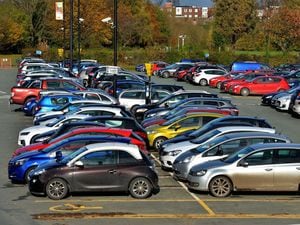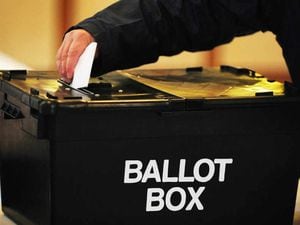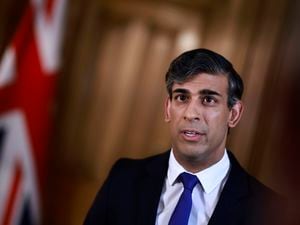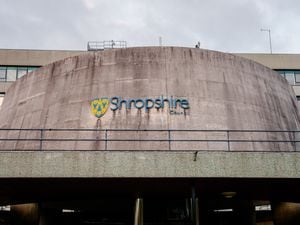Parking charge rises 'won't be to squeeze money out of motorists', leader says
Parking charges could be on the rise in Shropshire - though officials claim it isn't to "squeeze money" out of motorists.

Shropshire Council will carry out a review of charges as they say the cost of bus travel is increasing quicker than parking fees, which is "almost encouraging" people to drive instead of using public transport or greener options.
Measures the review will consider include charging for parking on Sundays and later in the evening than 6pm, charging more during busier times, getting rid of Christmas concessions, and extending pay and display provisions to peripheral areas of the River Severn loop in Shrewsbury.
Eight councillors on the authority's Place and Overview Committee voted in favour of a review of the current parking strategy being undertaken over the next few months and a draft document be submitted to Cabinet before the end of the financial year for public consultation. Two councillors - David Vasmer and Roger Evans of the Lib Dems - abstained from the vote.
Councillor Dean Carroll, who until this Wednesday was the council's cabinet member responsible for highways and infrastructure, said: "The law says car parking can't be used as a tax on motorists. We've taken that as the starting point. The reason for these changes isn't to find another way to squeeze money out of motorists.
"The reason for the review is to achieve the modal shifts and cultural changes outlined."
The council's assistant director for infrastructure, Steve Smith, earlier outlined that the aim was to encourage people to use public transport and active travel options more.
In his report, Mr Smith said: "Parking is a complex and emotive issue that is often trying to weave a balance between several competing demands. It is therefore essential that any parking strategy proposals are fully consulted upon to ensure that all views are sought to help inform where the most appropriate balance between competing demands can be struck.
"The effectiveness of a parking strategy will be very reliant on the pricing mechanisms used. It is considered that an initial pricing mechanism and charging rate should be developed and consulted upon in parallel with the parking strategy to ensure that consultees are able to provide fully informed feedback on proposals and the potential implications that may arise from a strategy.
"Statutory guidance for parking states that authorities should never use parking charges just to raise revenue or as a local tax. No presumptions on income arising from a parking strategy are considered at this stage.
"A parking strategy has the potential to promote more sustainable modes of travel and as a result reduce carbon emissions, particularly in the larger towns of Shrewsbury, Oswestry and Bridgnorth. A new parking strategy would therefore be expected to have a positive effect on carbon emissions from energy and fuel consumption."
The previous strategy was launched in 2018, but Mr Smith said it is outdated due to changes to travel habits contributed to by the coronavirus pandemic.
He added: "The programme for implementation has been severely disrupted by the Covid-19 Pandemic and have become increasingly less affordable as a result of inflationary parking costs not being met by a reciprocal inflationary increase in charges, resulting in costs being higher than income and needing to be subsidised from other budgets. The impact from Covid saw a further significant drop in income. The changes in behaviours arising from Covid and cost of living means that some of these initiatives may not reflect contemporary needs and therefore should be reviewed.
"During the last four years, new issues have emerged, parking demand frequently exceeding supply at peak times, compounded by an increase in frequency of emergency and flooding events disrupting service provision."





